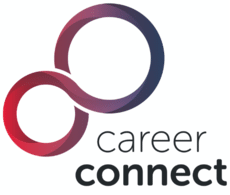For International Women's Day, Karen Parry, our Chief Operating Officer, discusses her career journey - from school leaver to being responsible for operations across our whole charity.
What was your very first job?
I was a Saturday and summer sales assistant at Shaws bakery on Greater Homer Street, also providing cover when needed in their shops across Liverpool. I often had to get up to three busses so it could be a very early start! It definitely taught me the discipline of time management, getting up early and being organised.
How long have you been at Career Connect?
34 years in total, including Career Connect’s predecessor organisations.
Did you know what you wanted to do when you were at school?
When I was younger I thought about being an actress, my interest sparked from studying drama at school and my general enjoyment of films, cinema and theatre however once I learned more about the profession (and myself!), I realised this wasn’t the job for me. As I progressed through Year 11 (or fifth year as it was called in my day), I knew that I wanted a job where I would be able to help people, so I did some research into jobs I was aware involved helping people; teaching and social work.
In school, I had some great careers advice – my adviser encouraged me to think more broadly about what I meant by helping people and supported me to explore various roles that involved this, and enabled me to understand the various pathways and routes available to me post 16.
That was part of my thinking in doing a Business Admin Apprenticeship with the Council. It gave me the chance to do different placements and gain a greater understanding of the sectors. I began in social care, and my second placement was in careers – and the rest is history!
I should also add, that as I progressed, I ended up becoming my original Career Adviser’s assistant – I’m not sure he envisaged that at the time of giving me the advice!
Why did you choose an apprenticeship? How did you benefit from that route?
I chose an Apprenticeship because it offered a full-time salaried job, and training at the same time.
My initial plan was to stay on at school however I had started to think about working full time rather than going onto Further Education when I was offered a full-time role at Shaws.. As tempting as it was to have a weekly pay packet, I knew that as well as work, I wanted to further my education. I spent one day a week at college as part of my apprenticeship to study for a BTEC National qualification in Public Administration. For me, the apprenticeship offered the best of both options I had been considering – pay and qualifications.
Reflecting back, my time as an apprentice was invaluable and of great benefit to me and the experience has had an influence on my career path to date. While my role was administration, I was given the opportunity to gain an understanding of different sectors, including the various roles in each department and the skills and qualities required. I was able to work shadow and learn on the job. I met so many inspirational women who encouraged and empowered me to learn and grow.
Can you give us a walkthrough of your career journey?
After completing my Apprenticeship, I decided that careers was definitely the way I wanted to go. With my qualification, I got a job in the Careers Service as an administrator, and then moved into operational delivery, which I began to realise was a strength of mine.
Through work I had the opportunity to complete NVQ training in Careers Information, Advice and Guidance and became a professionally qualified Careers Adviser, working in schools, training providers, youth justice and in the community, supporting young people for a number of years.
I had an interest in helping vulnerable young people, so to build my skills and experience, in addition to my Careers Adviser role, I became a part-time Youth Worker and completed Youth Work and Coaching qualifications.
I applied for a secondment to Raleigh International where I ended up managing the Motiv8 programme for young people. This was my first taste of management. I came back to my own organisation as a Team Leader, and this was the start of my path into leadership, as I went on to hold various managerial roles
I wanted to continue to develop, and while I had years of operational experience as a manager, I was interested in challenging my views and perceptions and developing my theoretical knowledge, so I saved up and self-funded a Level 7 strategic leadership and management course at St Helens University Centre. That was a great experience, if not challenging!
What attracted you to the careers sector?
Being able to help people and feeling like I could make a difference. The careers sector offers the opportunity to inspire and enable people to achieve their life-long potential and seeing the impact that good careers advice can have is incredibly rewarding. There is a lot of job satisfaction.
I have remained committed to working in the careers sector as I am passionate about social mobility.
I feel incredibly proud to work for a charity that empowers people of all ages with the confidence, skills and knowledge to move forward in education, training and employment.
What does your current role involve?
I started my current role of Chief Operating officer in June 2023. I am part of the senior leadership team which shapes the vision for the Charities future as well as providing governance and management oversight for all of our current delivery. This is so we can grow as a charity and support more people year on year.
I oversee the delivery of all of our operational contracts. Every day is different and may include working with our fantastic teams and managers to review the impact we are having, supporting business development to bid for new opportunities and contracts and meet with a diverse range of partners to collaboratively plan and review service delivery.
I am very passionate about user participation, and giving the people we support a voice in shaping our services. As an organisation, we want to help bring their voices and views to decision makers and commissioners who fund services.
I still go out and visit teams across the charity and get involved in frontline delivery as much as I can.
What do you enjoy most?
I get a lot of job satisfaction when I see the impact that our programmes have on the people we support.
We should never underestimate the power that good, impartial careers education, information, advice and guidance or employability support can have on an individual, on families, on social mobility and on society as a whole.
What opportunities do you get to help empower women in your role?
As a leader I have managed a lot of women across our charity. Hopefully I have been a good role model!
I hope that sharing my own lived experience of starting as an apprentice at 16 has helped them to relate and understand that there are a range of pathways out there.
I hope I have helped them realise that it isn’t a case of one pathway being ‘better’ than another. There is a path for everyone, and there is a parity of esteem between them.
I also really enjoy giving careers talks to schools and helping challenge stereotypes around ‘typical’ career roles for women.
This year’s IWD theme is “Invest in women: Accelerate progress”. How can careers provision/and or employers make this happen?
I think impartial careers provision and employability support is vital in helping females understand the breadth of roles and industries open to them.
I think the sooner that a young person can meet a range of employers the better, so they can see real world examples of where a path may take them. This is especially important when it comes to challenging perceptions of ‘typical’ roles for women.
The earlier we can help a young woman to become career ready and informed, the more options she is able to explore, and the more informed decisions she can make. This can help bridge gaps when it comes to equity.
What advice do you have for a woman/girl considering her career path?
Have confidence in your own abilities, and research opportunities within sectors – for example, not all NHS jobs are frontline in hospitals.
It’s never too late to learn. I did my Leadership qualification when I was in my 40s and had a young child. It was difficult, but it was worth it.
Always look to your support networks, and don’t be afraid to reach out for help if you need it.
Don’t be afraid to ask other women about their experiences and career journeys – I’ve always found my peers to be very open and generous of their time. You might even find that it leads to a new opportunity!

